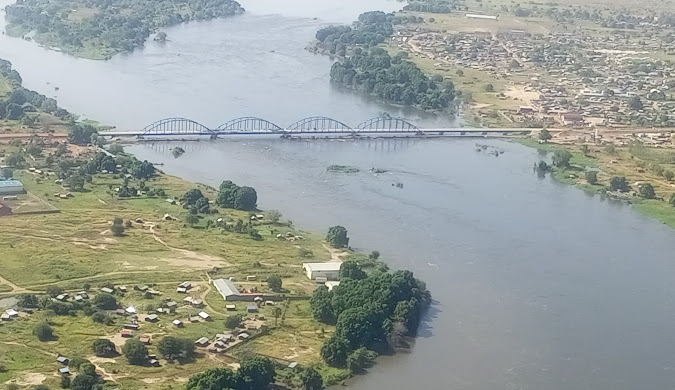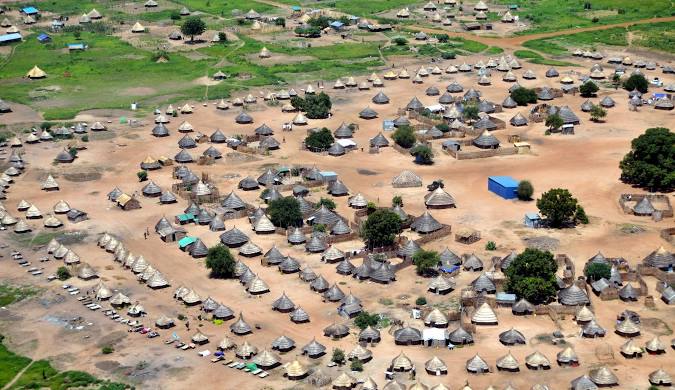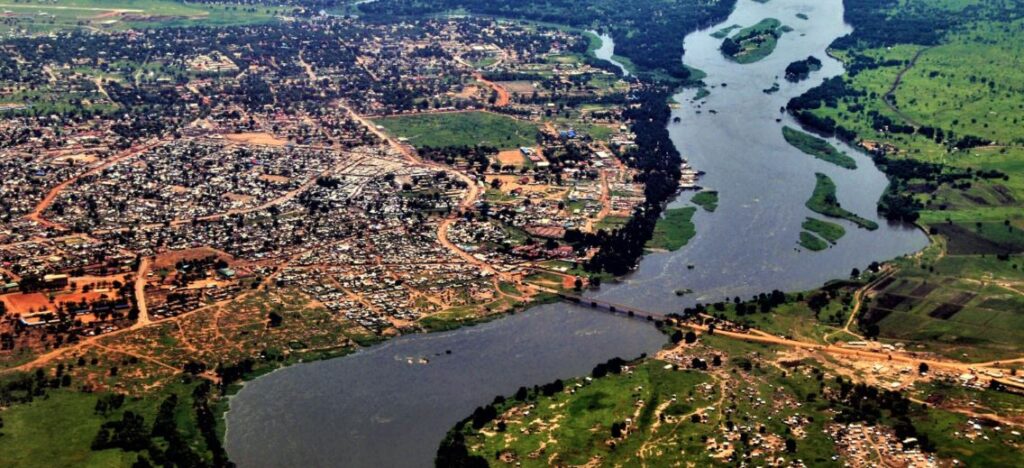- Home
- About Juba
Juba: A Journey Through South Sudan's Capital

Freedom Bridge
Juba the capital city of South Sudan, is a bustling metropolis situated on the White Nile. As the country’s political, economic, and cultural centre, Juba offers a unique blend of modern amenities and traditional charm. Founded in the early 20th century, the city has experienced significant growth, particularly since the signing of the Comprehensive Peace Agreement in 2005. Visitors to Juba can explore its vibrant markets, historical sites, and stunning natural landscapes while immersing themselves in the rich culture of South Sudan.
The city which is the bustling heart of South Sudan, offers a unique blend of modernity and tradition. As you step into this vibrant city, you’ll find a fascinating mix of colonial architecture, bustling markets, and stunning natural landscapes.
- Population: 525,953 (2017)
- Climate: Aw
- Elevation: 550 m (1,800 ft)
- Founded: 1922

Explore Juba
Exploring the City’s Highlights

Start your adventure by visiting the Juba International Airport, a hub of activity with direct flights from various parts of Africa and the Middle East. Then, delve into the academic world at the University of Juba, the country’s largest public university. For a glimpse into South Sudan’s recent history, explore the new presidential palace, opened in 2011.
For panoramic views of the city, hike up Jebel Kujur Mountain, a popular spot for locals to perform rituals. Discover the city’s colonial past by exploring its historic buildings or visiting the monument in the middle of the main roundabout.
Immerse Yourself in Local Culture
No visit to Juba is complete without experiencing the vibrant Konyo Konyo market. This bustling marketplace is a sensory overload, filled with the sights, sounds, and smells of local life. For a more relaxed evening, head to one of the city’s many bars or restaurants.
Witness Traditional Sports and Ceremonies
Juba is a hub for traditional South Sudanese culture. Witness the thrilling spectacle of traditional wrestling, a popular sport among many tribes. Every weekend, the city’s outskirts come alive with the sounds of cheering crowds as wrestlers compete for glory.
Discover South Sudan’s History
Pay your respects at the Dr. John Garang Mausoleum, the final resting place of the country’s founding father. Learn about the history of the Bari people by visiting Jubek Tomb, the founder of Juba.
Experience the Dinka Way of Life
Venture outside the city to visit a Dinka cattle camp. These nomadic pastoralists have a deep connection to their cattle, which play a vital role in their social and economic lives. Witness their unique way of life and learn about their traditions.
Indulge in Local Cuisine
Juba’s diverse culinary scene offers a range of options to satisfy every palate. From international cuisine to authentic South Sudanese dishes, there’s something for everyone. Don’t miss the opportunity to try traditional delicacies like asida (a porridge made from sorghum) and kuku choma (roasted chicken).
Tips for Your Visit
- Travel during the dry season (November to April) to avoid heavy rainfall and difficult road conditions.
- Be mindful of photography restrictions. Avoid taking photos of public buildings, especially military establishments.
- Respect local customs and traditions.
- Stay safe by avoiding certain areas and following local advice.
With its rich history, vibrant culture, and stunning landscapes, Juba offers an unforgettable experience for travelers seeking an authentic African adventure.
Tips for Visiting Cattle Camps
- Obtain a Local Guide: A knowledgeable guide can help you navigate the area, interact with the communities, and ensure your safety.
- Respect Local Customs: Be mindful of cultural norms and traditions. Ask permission before taking photos or interacting with the people and their cattle.
- Come Prepared: Bring appropriate clothing, sunscreen, and insect repellent. Be prepared for basic living conditions and limited amenities.
Exploring Dinka and Mundari Cattle Camps Near Juba
Experience the heart of South Sudanese culture by visiting the cattle camps of the Dinka and Mundari tribes. These nomadic pastoralists continue to live traditional lives centered around their cattle, offering a unique glimpse into the country’s rich heritage.
Dinka Cattle Camps
- Location: The Dinka are the largest ethnic group in South Sudan and their cattle camps can be found in various regions around Juba, including Gumbo-shirkat
- What to Expect: Witness the intricate relationship between the Dinka people and their cattle. Observe their daily activities, such as herding, milking, and tending to the animals. Learn about the cultural significance of cattle in Dinka society, including their role in marriage, wealth, and status.
Mundari Cattle Camps
- Location: The Mundari tribe primarily inhabits the area around Terekeka around koda, south of Juba.
- What to Expect: Experience the unique cultural practices of the Mundari, including their distinctive hairstyles, body adornments, and cattle care techniques. Witness the Mundari’s famous “scarification” rituals, where young men receive intricate patterns of scars on their bodies.
A Visit
to a Dinka or Mundari cattle camp offers an unforgettable opportunity to
immerse yourself in the authentic culture of South Sudan. Witness the beauty
and resilience of these nomadic communities as they continue to uphold their
traditions in a rapidly changing world.

